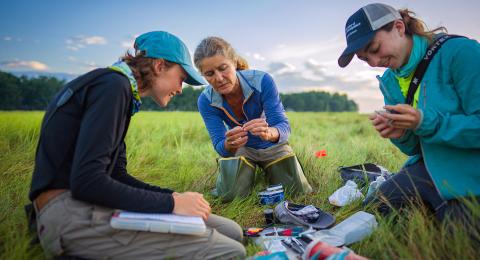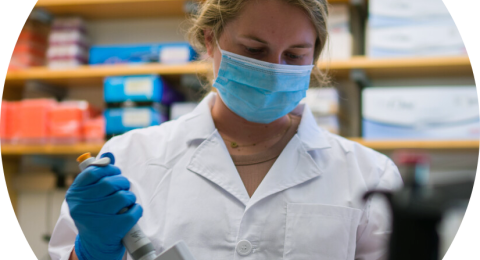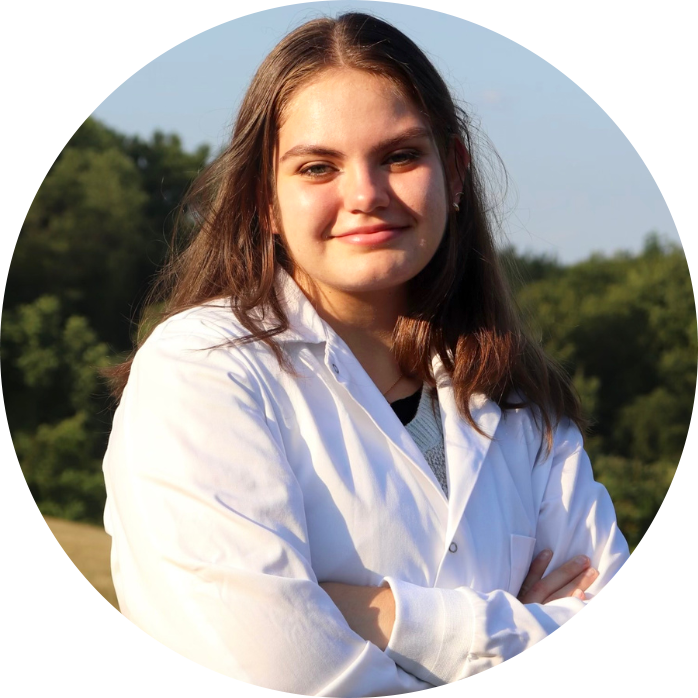Undergraduate research is a valuable learning opportunity available to COLSA students. Participation in research can be helpful in pursing graduate studies, developing professional relationships with faculty, gaining insight to potential career paths, and learning how a real lab operates. We encourage any students who are interested to reach out to faculty members about getting involved in research.
The labs listed below are actively seeking student researchers and we encourage any interested students to reach out to the faculty contacts about these opportunities. This email template can serve as a guide for students unsure of how exactly to take that first step. When emailing faculty about research opportunities, it may also be helpful to attach a resume to the email. For students who don’t currently have a resume, the St. Martin Career Exploration Office can help with building one.
For students interested in getting involved with research that isn’t actively recruiting undergraduates, it doesn’t hurt to reach out to the faculty lead about potential opportunities anyway. Talking to a professor after class, visiting office hours, or sending an email are all good ways of going about this.
When it comes to compensation, there are many options available for student researchers. These include hourly pay, work-study, class credit, fellowships, and more. We encourage students to discuss these options when exploring research opportunities with faculty members.
The Hamel Center for Undergraduate Research provides resources and financial support for the research, scholarly, and creative projects of UNH students. One-hundred percent of the funding for research awards and fellowships comes from donor gifts. Visit their webpage to learn more.
HOW TO GET INVOLVED IN UNDERGRADUATE RESEARCH
Check out the posted research opportunities below. A professor might be seeking undergraduate students to assist with ongoing research.
Talk to a professor or T.A. after class or in office hours about research they’re working on and opportunities that may be available in their lab.
If there's any other research you're aware of and interested in getting involved with that isn't actively recruiting student researchers, feel free reach out the faculty researcher via email or office hours to check if there could be an opportunity for you to get involved.
If a week or two passes and you don’t hear back from the faculty researcher you reached out to, send a follow-up email. Professors can sometimes miss emails during busy parts of the academic year.
If you want to get more information about undergraduate research and further discuss if it would be a good fit, reach out to your academic advisor or the Hamel Center for Undergraduate Research at undergrad.research@unh.edu.
Student Research Stories
Hear from the student researchers themselves about their experiences.
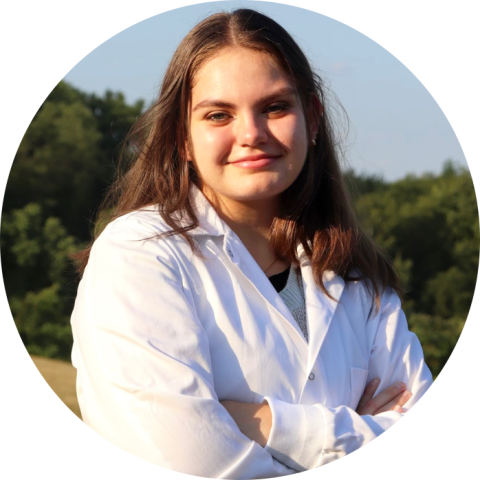
"When I enrolled at UNH, I knew there would be endless opportunities to extend my education past the classroom. I have always been interested in applying my knowledge in a way that matters. With UNH being an R1 school, research is encouraged and very easy to get involved with." – Kostandina Bicja '23
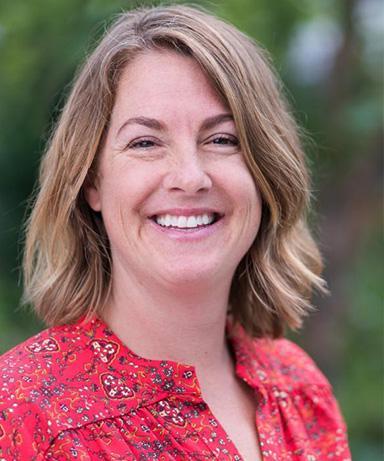
Research focus and opportunities: Our mission is to understand how disturbance from environmental change—ranging from agricultural management to permafrost thaw—affects the function of ecosystems, with a specific emphasis on greenhouse gas production, soil organic matter formation and nitrogen mineralization.
Jessica Ernakovich, Jessica.Ernakovich@unh.edu
or call 603-862-2216
Lab webpage, Jessica Ernakovich on Twitter
Research locations:
Find information on undergraduate job listings on the Ernakovich Lab website
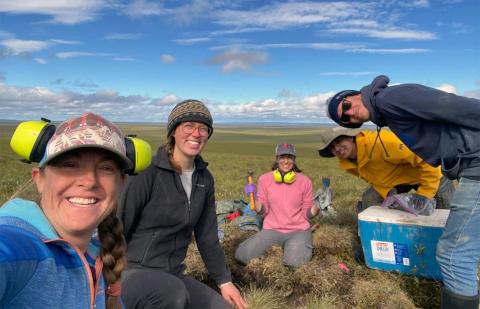
From left to right, Dr. Jessica Ernakovich, Else Schlerman (UNH), Dr. Caitlin Hicks Pries (Dartmouth), Fernando Montaño-López (Dartmouth) and Sean Schaefer (UNH) after a successful week of sampling permafrost soil outside Toolik Lake, Alaska.
To meet our lab's research mission, we engage in collaborative studies into how microbial communities interact with and function in their physical, chemical and biological environment. We use a mix of scientific tools—including high-throughput sequencing of nucleic acids and tracing of chemical transformations with stable isotopes—in a team that fosters a passion for discovery through support and inclusion of diverse people, backgrounds, perspectives and ideas.
We are often looking for undergraduates to join us in the lab, and have opportunities that range from performing wet lab analysis of soil biogeochemistry to the sequencing of microbial genomes to the building of environmental chambers. We have projects in both Arctic and agricultural biogeochemistry and microbial ecology. Shoot me an email with (1) your resume, (2) a paragraph about your research interests and (3) your schedule of availability if you are interested in applying. We also have the opportunity to mentor students for summer research through a few programs you probably want to check out: the Hamel Center for Undergraduate Research, the EMERGE REU program , and the ICE-TALKS summer international research experience for students program.
Find a complete listing of positions on the Ernakovich Lab website.
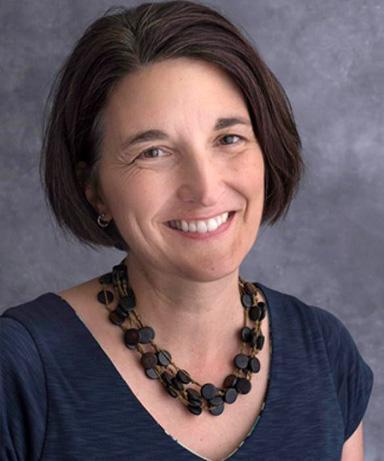
Research focus and opportunities: Research focuses on how human activities are impacting terrestrial ecosystems, with an emphasis on soil biota and nutrient cycling processes.
Serita Frey, Serita.Frey@unh.edu
Lab webpage, Serita Frey on Twitter
Research locations:
- Lab: James Hall, 114
We are specifically interested in how anthropogenic stressors (e.g., climate change, nitrogen deposition, agricultural management, invasive species) affect the composition and diversity of soil microbial communities and microbial-mediated carbon and nitrogen cycles. We work at the interface between ecosystem science, microbial ecology and global change biology, combining microbiological methods with stable isotope analysis and a variety of soil physical and chemical approaches to examine structure-function linkages.
We routinely employ undergraduates to assist with our field and lab research. There are positions during the academic year as well as over the summer. Undergraduates also engage in independent research, capstone projects, and senior theses. I welcome inquiries from potential graduate students who are motivated, have prior research experience, and are interested in working at the interface between ecosystem and microbial ecology. If you are interested in applying to work with Serita, please email her your CV and a brief description of your background and research experience and interests.
Additional information on lab opportunities available on the Frey Lab website.
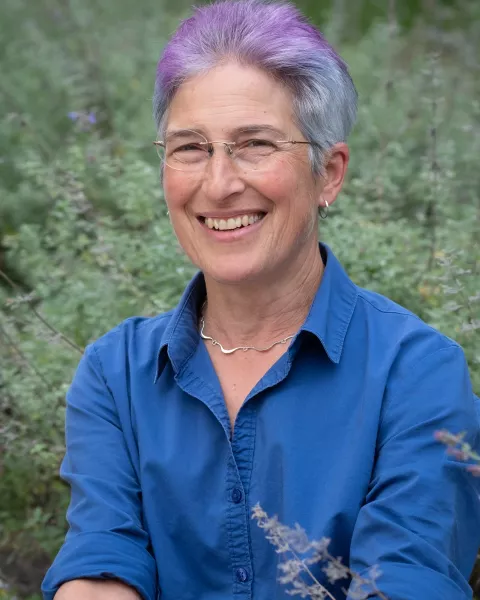
Research focus and opportunities: Focus is mainly in philosophy of biology (epistemology of model use).
Research locations:
- Lab: Rudman 216
My current scholarship is mainly in philosophy of biology (epistemology of model use), but I'm interested it lots of things (evolution, development, evo- and eco-devo, biomechanics, ...).
If you have a cool idea or interest that you want to explore, let's talk. Literature-based and wildly interdisciplinary projects are especially welcome. I have only a tiny bit of lab space, so any hands-on work must be small-scale and doable with minimal resources.
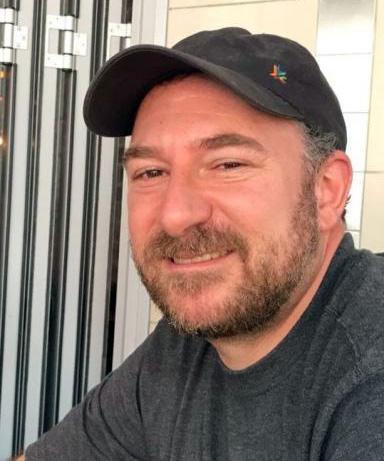
Research focus and opportunities: Field and lab research on various insects and fungi of forest health concern.
Jeff Garnas, jeff.garnas@unh.edu
Lab webpage, Jeff Garnas on Twitter
Research locations:
- Office: James Hall, 162
- Field lab: Spaulding Hall, G31
- Molecular lab: Rudman Hall, 135
Positions are varied and range from primarily field-oriented (working with Emerald ash borer, Southern pine beetle, Browntail moth, beech bark disease, etc.), lab-focused (fungal culturing, DNA extraction, insect trap sorting and identification), or both. Come join a dynamic team of students and postdocs doing interesting work related to the health of New England’s forest ecosystems!
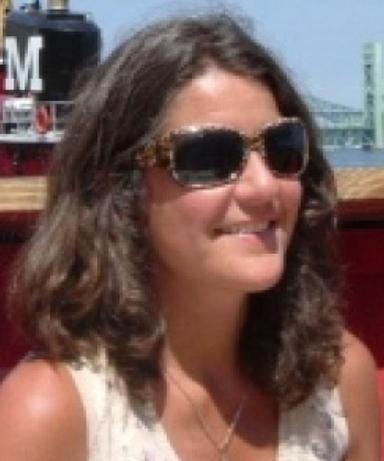
Research focus and opportunities: Research in the Kovach Lab is focused on population ecology, genetics and conservation of wildlife.
Adrienne Kovach, Adrienne.Kovach@unh.edu
or call 603-862-1603
Research location: Rudman Hall 134
Lab website: Kovach Lab
Lab members use interdisciplinary approaches, integrating genetic and genomic tools with population and landscape modeling and the collection of observational and ecological data. Students will be trained in extracting DNA from blood, tissue and fecal samples from marsh sparrows, cottontail rabbits or fish fin clips. They will also learn molecular techniques, such as PCR, genotyping and next generation DNA sequencing.
Both paid and for-credit positions are available.
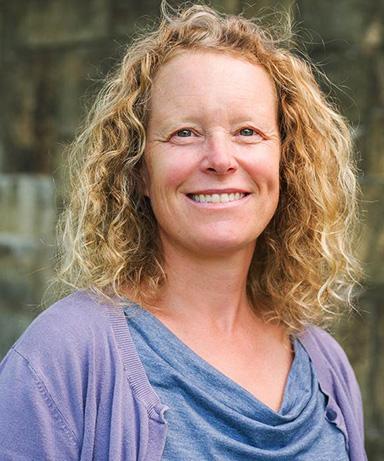
Research focus and opportunities: Study growing practices for the New England region (including new varieties, new crops and season extension strategies) to help farmers diversify their offerings, improve yields and improve crop quality.
Becky Sideman, Becky.Sideman@unh.edu
or call 603-862-3203
Lab webpage, Sideman lab on Instagram
Research locations: UNH research farms and greenhouses
Many of our integrated research and extension projects focus on high-value specialty crop production systems and methods of extending the growing season (e.g. season extension). Current projects include those focusing on strategies to produce seedless table grapes and figs in New Hampshire, the production of hydrangea for cut flowers, alternative strategies to overwinter strawberries, and specialty vegetable crop variety evaluation.
We welcome motivated undergraduate and graduate students to join our team. We hire 1-3 research assistants each summer and fall; with most (but not all) work taking place between May-November. In addition to learning about managing and maintaining several types of horticultural crops, you can gain experience with experimental design and layout, data collection, and data analysis. Opportunities also exist to develop individual research projects; several students have conducted research leading to honors theses, independent study projects, and undergraduate research conference presentations.

Lab and Job Description: The UNH Water Quality Analysis Laboratory (WQAL) is a research facility located within the UNH Department of Natural Resources and the Environment that provides high quality environmental analysis in support of research from local to international sources. The focus of our research is on the interactions between land use/land cover; extreme climatic events; and the water quality of streams, rivers, and lakes. Study areas would include water quality analysis, biogeochemistry and global change.
Jody Potter, Jody.Potter@unh.edu
or call 603-862-2341
Our projects span a variety of environments including tropical, temperate, and boreal forests. We are also a fee-for-service lab, analyzing water samples for clients at UNH, in the broader research community, and at federal agencies. Employees work under direct supervision of the Lab Manager and full time Research Technicians, to perform a variety of routine laboratory tasks of a predominantly manual or mechanical nature.
Characteristic Duties and Responsibilities:
- With specific instruction, and with no opportunity to deviate from established procedures, perform a limited variety of simple laboratory tasks
- Perform daily lab maintenance, such as organizing lab supplies, and clean glassware and other lab equipment
- Log in samples to be analyzed in the lab
- Prepare samples, standards and solutions for instrumental analysis.
- Assist with analysis on several instruments
- Local field work and sample collection possible
- Data entry
Minimum Qualifications:
- High School graduate
- Manual dexterity
- Must be able to wear and use appropriate personal protective equipment
- Major in a physical science
- Laboratory training in simple scientific techniques
- Good academic standing at the University
- Ability to stay on track and follow lab protocols
- Detail oriented
- Ability
If interested, please contact Jody Potter (Lab Manager) at Jody.Potter@unh.edu or 603-862-2341.
More information about the lab can be found at: UNH Water Quality Analysis Laboratory | NH Water Resources Research Center (WRRC)
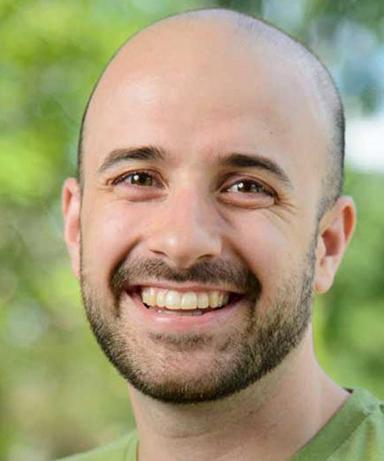
Research focus and opportunities: The Quantitative Marine Ecology lab at UNH is a team of scientists combining field observations with mathematical and statistical tools to address the most pressing issues in the oceans, addressing questions related to population ecology, socio-ecological systems, species monitoring, fisheries and sustainable seafood.
Easton White, Easton.White@unh.edu
or call 603-862-4400
Research location:
- Office: Spaulding Hall, 272
Lab website: Quantitative Marine Ecology Lab
All lab members of the Quantitative Marine Ecology Lab must:
- Be decent human beings
- Have an interest in ecological systems and using quantitative tools (e.g., mathematical models, statistics, R)
- And want to change the world
Members of the lab are strongly committed to anti-racist practices, real diversity and inclusion efforts, and moving science beyond the ivory tower.
You can read the Quantitative Marine Ecology Lab's commitment to diversity, inclusion, and equity online.
Applying to the Lab
The lab often has openings for undergraduate students at UNH to contribute to projects or design a project for an undergraduate thesis/research experience. These can be paid or count as course credits. These projects are typically co-designed by the student, QMEL graduate students, and Professor Easton White. The students most likely to be accepted for a position are those with a keen interest in developing quantitative skills in the context of marine systems.
If you are interested, please send Easton.White@unh.edu a CV and brief introduction, including details of your prior research experience, as well as your research interests and goals and how you think these align with the Quantitative Marine Ecology Lab's research program.

Research focus and opportunities: The main research focus is amino acids requirements in lactating dairy cows and bioavailability of rumen protected amino acids.
Nancy Whitehouse, Nancy.Whitehouse@unh.edu
or call 603-862-1349
Research location: UNH Keener Dairy Research Building, O'Kane Road, Durham
Students can be involved in setting up for trials, feeding dairy cows research diets, collecting and processing feed, blood and milk samples. There is also data entry for the trails. This position allows the student to get research experience along with large animal experience. There is also a database project where students involved in that will learn different ration balancing programs and literature searches along with entry data into spreadsheets.
Pay starts at $9.00 but can be higher depending on level experience with large animals.
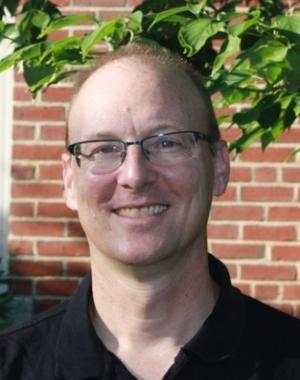
Research focus and opportunities: Understanding the ecosystem service of water quality regulation, dynamics of freshwater ecosystems.
Wil Wollheim, Wil.Wollheim@unh.edu or call 603-862-5022
What you'll need: Curiosity, willingness to learn, attention to detail. Want to learn more? Visit the Water Systems Analysis Group website. Ready to talk? Email Wil.Wollheim@unh.edu
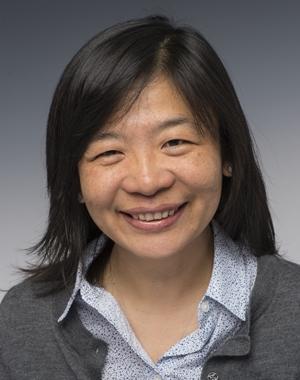
Research focus and opportunities: Understanding the ecosystem service of water quality regulation, dynamics of freshwater ecosystems.
Feixia Chu, Feixia.Chu@unh.edu or call 603-862-2436
Lab Location:
- Rudman 324
The long-term goal of my laboratory is to utilize enabling mass spectrometric (MS) and biochemical techniques to comprehensively understand the nature and function of posttranslational modifications and macromolecular recognitions in orchestrated events. Our group has elucidated spatial organization of several protein complexes that are central to proteome homeostasis, viral dsRNA recognition, unfolded protein response, vision signal transduction, and transcription elongation.
In addition, we have identified key regulatory proteins and posttranslational modifications that modulate chromatin modifier function, gene cluster localization, cAMP signaling pathway in neuronal cilia, transcription regulation, and cell epigenetic state.
We are looking for undergraduate students who are interested in our research projects.

Research focus and opportunities: The two major research focus areas are in the hippocampal memory formation and neuronal primary cilia. Xuanmao Chen
Xuanmao Chen, Xuanmao.Chen@unh.edu or call 603-862-4542
Lab Location:
- Rudman 353/355
The Chen Lab has two major primary research areas: hippocampal memory formation and neuronal primary cilia. "Memory is the glue that holds our mental life together" (Kandel et al., 2014). Aberrant "glue" impairs cognitive function and lead to a variety of disorders such as dementia, amnesia, post-traumatic stress disorder (PTSD), intellectual disability, depression, schizophrenia, and autism. Elucidating the mechanisms underlying learning and memory is crucial not only for understanding how we acquire and store knowledge but also for developing therapies to treat these cognitive disorders.
Primary cilia, which are centriole-derived "cellular antennae," play a critical role in sensing extracellular signals like hormones and morphogens. These signals regulate a wide range of physiological processes, including energy balance, cognition, and development. Dysfunction in primary cilia is linked to various human diseases, including developmental disorders, obesity, psychiatric conditions, and cognitive impairments.
Our long-term research goal is to build bridges connecting fundamental neuroscience research with translational medicine, facilitating the development of novel therapies to treat cognitive dysfunction-related disorders.
The Chen Lab is actively recruiting motivated undergraduate students, who aim to advance to graduate schools for a PhD, to join our ongoing research projects. This is a NIH R15 funded opportunity for students interested in neuroscience research.
Students will have the opportunity to apply for Hamel Center undergraduate research awards and engage in a variety of advanced research techniques, including confocal molecular imaging, mouse behavioral analysis, EEG/EMG deep-electrode recording, In vivo deep-brain calcium imaging on freely behaving mice, pharmacological studies and transgenic animal models.
Funding may be available through successful application of the Hamel Center for Undergraduate Research Awards (REAP, SURF, URA, or IROP) and the McNair Scholar Program at UNH.
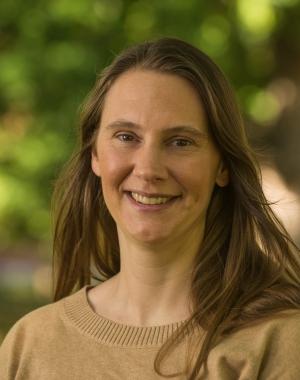
Research focus and opportunities: Conduct research on how biology students learn, focusing on quantitative skills such as graph interpretation, statistics, and computer programming languages
Melissa Aikens, Melissa.Aikens@unh.edu or call 603-862-0840
Lab Location:
- Spaulding 130
We will conduct research on how biology students learn, focusing on quantitative skills such as graph interpretation, statistics, and computer programming languages. Our research looks at both students' motivation to engage in quantitative tasks and the cognitive processes they are using when doing quantitative tasks.
We have collected data on students' expectations and experiences taking a biology data science course, with the intent of figuring out how different aspects of a course might affect student motivation. We are looking for students for spring semester (2025) to work together in a team to help analyze interview data - no experience necessary!
There are course credit options.
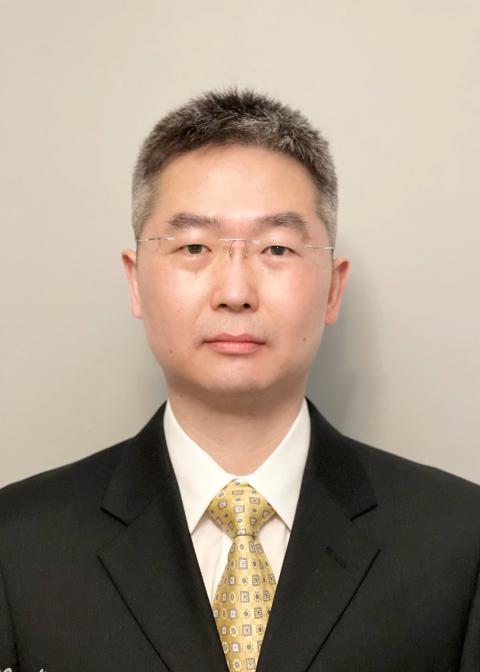
Jingwei's lab is not actively recruiting.
Research focus and opportunities: Research focus in epigenetic regulation in cancer cells.
Jingwei Cheng, Jingwei.Cheng@unh.edu or call 603-862-1881
Undergraduate students seeking hands-on experience in epigenetic regulation in cancer cells are encouraged to apply for this position. Students can earn credits by registering for INCO 590, INCO 790, 795, or 799.
Those interested in summer research are invited to apply for REAP and SURF fellowships through the Hamel Center for Undergraduate Research. Students will also be encouraged to present their preliminary findings at the annual UNH Undergraduate Research Conference.
Freshmen and sophomores are encouraged to apply.

Research Interests:
- GIS and remote sensing technologies (UAV and cloud computing)
- GeoAI for forest ecology and management
- International conservation
Benajmin Fraser, benjamin.fraser@unh.edu, 152 James Hall
Visit lab website
The BASAL specializes in researching and exploring natural resource conservation practices through the use of geospatial analysis involving remote sensing, photogrammetry and image interpretation, digital image processing, and geographic information systems.
The research interests of this lab are divided, almost equally, between basic research on spatial data uncertainty/map accuracy and applied research applying the tools of remote sensing, GIS, and spatial data analysis to solving natural resource problems. These projects have included deer and bear habitat mapping, endangered plant habitat analysis, mapping forest change, fire and fuels management, and eelgrass mapping, to name just a few.
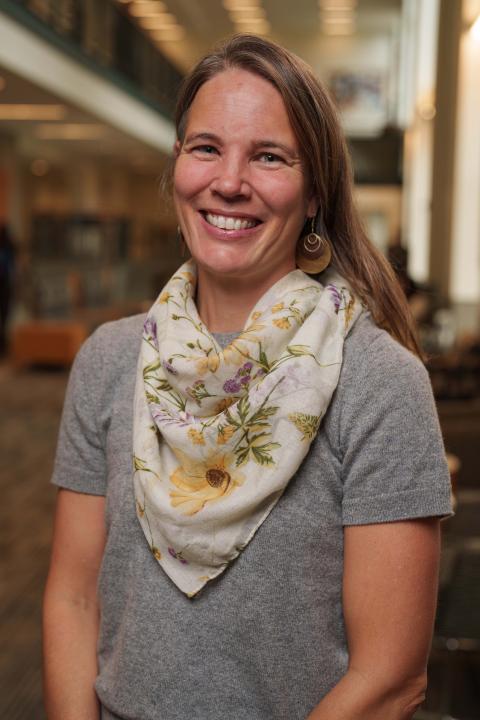
Research focus and opportunities:
We are currently seeking students to support ongoing field lab research aiming to understand soil carbon storage and soil greenhouse gas losses from agroecosystems, including pasture-based and silvopasture-based dairy systems.
We are also looking to hire students to support winter field work measuring snow depth and soil frost.
Alix Contosta, Alix.Contosta@unh.edu, (603) 862-4204
Visit lab website
The Trace Gas Biogeochemistry Group studies the response of carbon, nitrogen and other element cycles to climate and land use change. Our research is located in subarctic, temperate, and tropical biomes that include tundra, forested, urban, and agricultural areas. We focus on trace gas biogeochemistry within these ecosystems, developing and utilizing a variety of techniques such as in-situ sensors, remote sensing, and process-based modeling from local to global scales. We work at the intersection between science and society, collaborating with students, educators, stakeholders, and citizens.
Are you a COLSA faculty member who wants to list your lab on this webpage or update your listing? Fill out our online form and a member of the COLSA communications team will be in touch!
